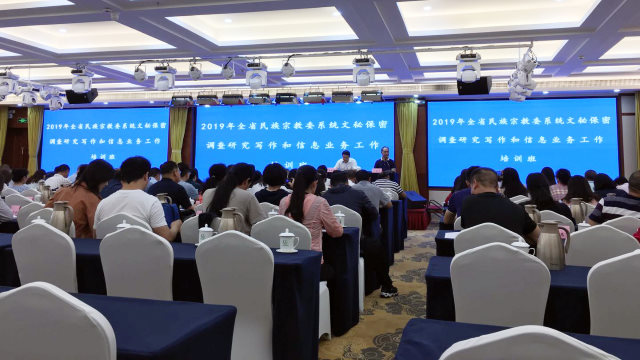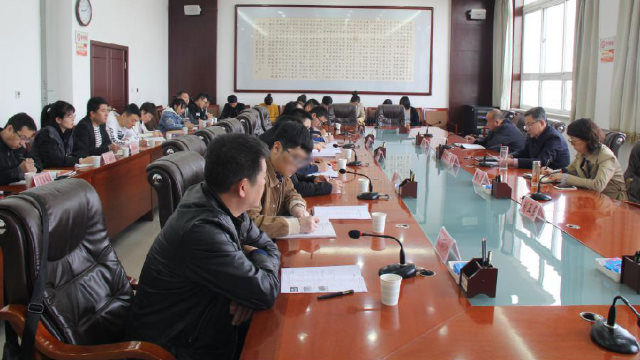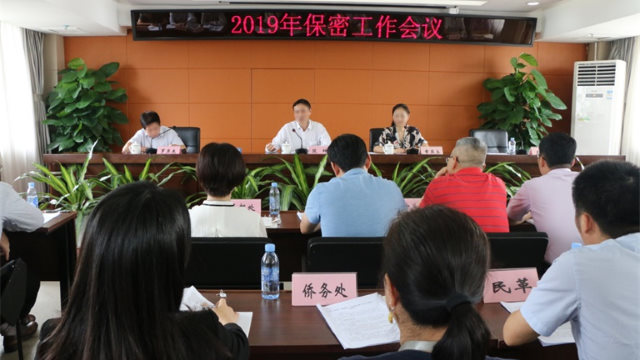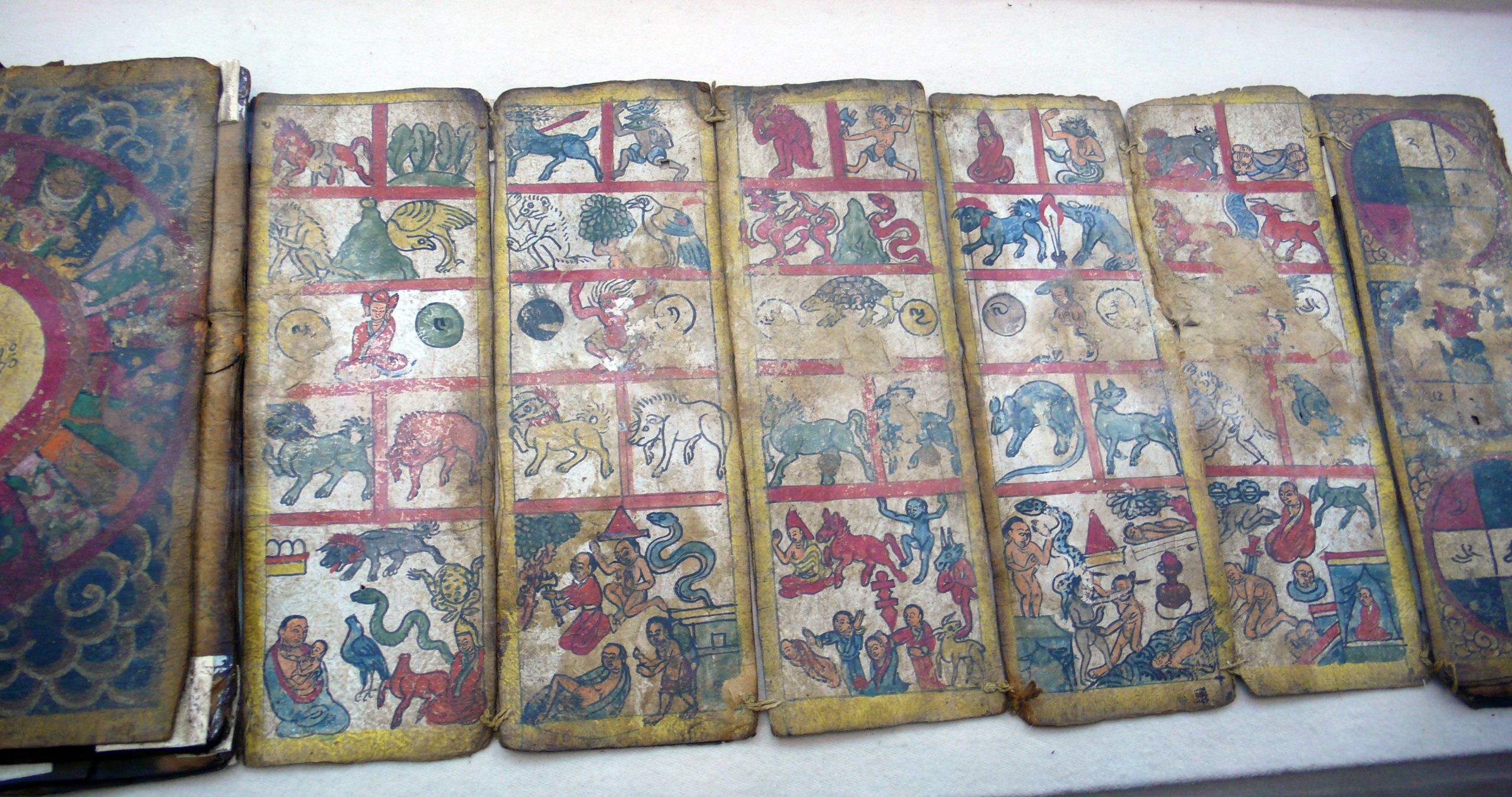The regime aims to conceal its devious acts by censoring online communication and classifying anything related to religious persecutions as top-secret.
by Lin Feng
Bitter Winter and other media outlets have continuously exposed numerous incidents of religious persecution and violations of human rights in China, providing images and documents as evidence of the CCP’s crimes. To stop information from being sent to the media and find out and punish the sources of such leaks, investigations throughout the country were launched earlier this year.
According to the documents we recently obtained, the CCP regime continues to strengthen secrecy and confidentiality measures at all levels of government seeking to block any leaks related to the implementation of its religious policies, while tightening the censorship of information in the media and social networks.

In a document issued by a local government in central China, all information, views, and remarks about religions on the internet, social media, mobile apps, and other outlets are ordered to be strictly controlled.
The document calls to monitor all websites as well as profiles on messaging and microblogging platforms, like WeChat and Weibo, that deal with religions. When any “harmful” information is discovered, or particular posts are shared more than 300 times, local authorities should implement emergency measures and report such cases to a higher level of government within two hours. They should also contact the Cyberspace Administration, United Front Work Department, and other relevant institutions to deal with these instances.
When necessary, government-hired online commentators should be employed to reverse the direction of public opinion deemed unfavorable to the CCP. The document also demands to intensify the cultivation of specially-designated commentator teams and ensure their continuous training.
The government also intensifies efforts to prevent any documents related to religion from being leaked by organizing “confidentiality education” programs for employees of state institutions, who are warned that any breach of security is severely punished.

According to regulations adopted by a county in the northeastern province of Heilongjiang, all notices, work materials, and even correspondence about the implementation of religious policies are marked as secret. For example, a questionnaire to collect information about people of faith on the grassroots level has a disclaimer at the bottom of the page: “This form contains secret information, and it should be disposed of immediately after it was processed. Access to the forms and their use is limited; it is forbidden to disseminate them via the internet, smartphones, and WeChat, or publish them otherwise.”
A document issued by a local government in the Inner Mongolia Autonomous Region also demands explicitly to ensure that all religion-related work is kept secret. Religious affairs offices should be equipped with computers that have high-level security technology, and all materials with information on religious investigations cannot be stored on computers connected to the internet. Any texts about religious persecutions are forbidden to be shared online or sent by email.
A lecturer at a university in the central province of Henan told Bitter Winter that during all recent meetings dedicated to the issues of religion at his place of work, the administration stressed that “sensitive issues” are forbidden to be publicized. Attendees were even prohibited from taking notes and could only convey the content of meetings verbally. Should any information discussed at the meetings be disseminated, those responsible would be punished, the university administration warned.
According to a Three-Self preacher who recently took part in a training in Guangzhou, the capital of the southern province of Guangdong, the participating clergy members were educated on traditional Chinese culture, and no secret information was disclosed. Regardless, all participants were demanded to sign non-disclosure agreements and had to hand over their cellphones lest they take photos or make recordings of the meeting.
As a unique outlet of information that reports on violations of religious liberty and human rights in China, Bitter Winter has been the source of distress for the CCP since its launch in May 2018. It was designated as an “overseas hostile website” in the summer last year, and the investigation into the leaks disclosed in our magazine has been taken over by the Chinese Ministry of State Security. The campaign has resulted in the arrest of many Bitter Winter reporters.
An insider from a National Security Division in the southeastern province of Fujian recently revealed that inquiries into reporters who provide information to Bitter Winter continue in full force. The source reported that as per a central government document, the arrested reporters might face from 10 to 15 years of imprisonment, and even be “put to death.” Provincial and municipal governments throughout the country are ordered to investigate anyone who has previously provided Bitter Winter and other media outlets with documents and information on religious persecution.

Even members of the clergy who have shared information about crackdowns on their places of worship are not spared. A Three-Self church pastor from the eastern province of Zhejiang was investigated, and his home raided because he was discovered revealing information on the CCP’s persecution against his church to a citizen reporter. He continues to be under surveillance.
A Catholic from Henan Province told Bitter Winter that the local Public Security Bureau investigated a priest in the area for revealing information about the forceful demolition of his church to a citizen reporter on the phone, officials claiming his actions were “unfavorable to the government.”
Source: Bitter Winter












